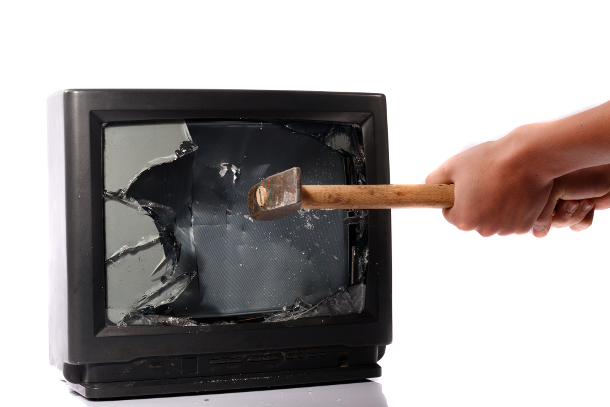Every business knows that good customer service is critical to success. Well, most businesses. Comcast seems to have forgotten, if this phone call is any indication. The recording, in which an eager customer service rep relentlessly asks a customer why he wants to disconnect, went viral this month. Spoiler alert: it did not help Comcast’s already-tarnished reputation.
Comcast and Time Warner Cable: Most hated companies merging?
Do an Internet search for “I hate Comcast” and you’ll get millions of hits, including forums and even a Facebook page dedicated to the topic. The perception that everyone hates the broadcasting and cable company, dubbed 2014’s Worst Company in America by Consumerist, is backed by statistics.
In a recent study by The American Customer Satisfaction Index, Comcast and Time Warner Cable both received bottom-of-the-barrel score in all three categories they appear in. Registration is required to see the free report, or you can read a summary of the findings.
Comcast received a score of 57 (out of 100) in the category of Internet Service Providers, compared to Verizon’s more-respectable 71. In the categories of Subscription Television Service and Fixed Line Telephone Service, Comcast did a little better, with scores of 60 and 67, respectively.
Time Warner and Comcast are not just the lowest-rated cable and Internet providers in the country, they are also the largest. And they want to merge. Because they don’t compete in major local markets, the issue of monopoly will likely not be a deal breaker for the merger, first proposed in February 2014. However, consumer advocates argue the current non-compete is intentional, to aid merger options, and creates grave concerns for consumers, including the future of net neutrality.
Comcast and Time-Warner Cable are currently waiting for approval from the Department of Justice and the Federal Communications Commission to proceed.
Moving? How to cancel your cable service
Customers subscribe to Comcast and Time Warner Cable despite their dissatisfaction because in many markets, they have no other options. They understandably feel they’re up against Goliath when it comes to fighting back.
If you’re a subscriber but you want out, follow these steps.
1. Read your contract carefully and find out what you agreed to when you signed up. Look for the length of time your subscription runs, applicable cancellation fees, and clauses about moving and cancellation.
2. Call a customer service representative for “the talk.” Both Comcast (Xfinity) and Time Warner Cable require customers to cancel service over the phone, presumably so customer service representatives can convince (some might say harass) them to stay.
Be prepared to persevere and don’t hang up until you are assured that your service has been canceled. Be clear on the remaining fees that you’ll have to pay, when your last bill is coming, and whether you have to return any equipment.
It’s always a good idea to take notes during the call and to get the name of the customer service representative helping you, to reference in any follow-up communication.
3. Return the equipment either by mail or in person at a store, as directed by the customer service representative.
Alternatives to Comcast, Time Warner
In an industry known for a scarcity of options, a new provider is on the block. Google Fiber is making waves by competing with established providers in select markets.
The technology company provides internet service up to 100 times faster than most broadband internet as well as cable TV services. Google Fiber is only available in Kansas City, Missouri and Provo, Utah for now, but will soon come to Austin, Texas and other cities in the future.
If Google Fiber isn’t in your town yet, you can still keep up with your shows. Stream content from services like Netflix, Hulu and Amazon Prime to your TV via Apple TV, Roku or Google Chromecast. You can also go more low-tech and attach a digital antenna for free basic channels.




